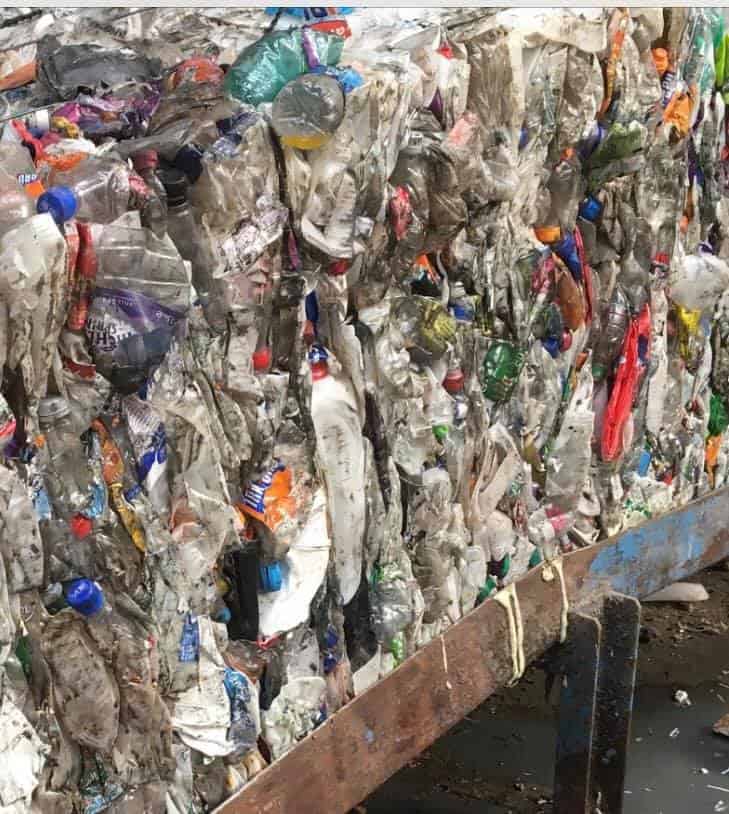Zero Waste Scotland has published a new landmark report – The Scottish Material Flow Accounts – that reveals the size of Scotland’s consumption footprint for the first time.
Hailed as an ‘insightful game-changer’ by environmental academics, the report shows the average Scot consumes 18.4 tonnes of materials every year – that’s the equivalent of 50kg per day on average.
Academics agree that a sustainable level of material use, which would still allow for a high quality of life, is about eight tonnes per person per year.
The analysis by Zero Waste Scotland quantifies Scotland’s material footprint for the first time. It shows us the materials we are extracting from Scotland’s natural environment every year, as well as those which are imported, exported, and wasted.
The Scottish MFA report paints a picture of the scale and nature of Scotland’s consumption by calculating all the raw materials used to make products (e.g. oil and metal ores) and all the finished products we consume, whether made in Scotland or imported.
Iain Gulland, Chief Executive of Zero Waste Scotland, said: “What the MFA tell us is that consumption in Scotland is unsustainably high. This is, in part, due to the quantity of things we buy. We need a system wide change that enables us all to choose more sustainable ways to live, use the things we need and share resources.”
Kimberley Pratt, Zero Waste Scotland environmental analyst and report author, added: “It is also due to the amounts of materials it takes to extract raw materials and manufacture new products. These processes are resource-intensive, but those costs are not obvious when we look only at the finished product. For example, 25 tonnes of iron ore must be mined to produce one tonne of iron which the average Scot might consume as steel in products such as the buildings we live and work in, cars and electrical appliances.
“This highlights the negative environmental impacts of our production processes and consumption habits which favour using new goods made from virgin materials rather than re-used or repaired goods, or goods made from recycled materials or from remanufacturing.”
The evidence of the Scottish MFA shows there is an inextricable relationship between what Scotland consumes and its global climate impact.
With the current global political agenda focussed on accelerating a green recovery from the coronavirus pandemic, ahead of COP26 later this year in Glasgow, the report provides a base of evidence to help us rethink how we consume in Scotland.
Cabinet Secretary for Net Zero, Energy and Transport Michael Matheson said:
“The Scottish Government is committed to ending our contribution to climate change within a generation. To make that happen, we need to understand and reduce the impact of the products and materials we consume.
“This is the first report of its kind for Scotland, and it will be a vital tool for engaging people in discussions on how we reduce the impact of our consumption. It is clear that the more materials we extract and use, the more damage we do to the climate and to nature.
“That is why we are committed to building a circular economy in Scotland. By encouraging reuse, repair and recycling, and designing products to last as long as possible, we can reduce the demand for raw materials, and the emissions that come with them. We will be introducing a Circular Economy Bill to help support that transformation.”
Mr Gulland added: “The MFA will be a valuable tool to inform new approaches that will deliver lasting, impactful change to the way we consume raw materials and play our part in tackling the climate crisis.
“We know that a circular economy is one of the solutions as it promises to maximise value from the goods we already have in circulation while relieving pressure on finite natural materials, like oil and precious metals. Achieving that requires a joint effort from all sectors – from individuals to designers, industry, and governments – and can help us generate new opportunities for Scotland from inward investment to new, ‘green’ jobs.
“Scotland’s buoyant re-use sector and our growing circular economy already provide us with more sustainable options to buy the things we really need. I urge Scots and Scottish businesses to consume conscientiously. Let’s consider making changes to our buying habits in all walks of life to help rebuild an economy compatible with protecting the environment and tackling the climate emergency.”
Terry A’Hearn, CEO of SEPA, said: “We recognise that as a society, we are over-using our planet’s resources. If everyone lived as we do in Scotland, we would need three planets to sustain ourselves. As we progress through the 21st century and beyond, only those nations that have developed ways to reduce their consumption of resources, and create little waste, will thrive.
“A circular economy is a truly game-changing opportunity to manage resources within planetary limits, reduce the harms associated with waste management and create economic opportunities.
“Zero Waste Scotland’s first Scottish Material Flow Accounts is a big step forward in helping us all understand where we need to target changes to make Scotland a one planet nation, and SEPA is committed to playing our part in making the circular economy a reality.”
Zero Waste Scotland is tasked by the Scottish Government with accelerating the development of a circular economy, a system which makes things last by keeping resources circulating in a closed-loop economy. This differs from our current linear economy in which we simply take, make, and use products before throwing them away, sometimes after only one single use.
The Scottish Material Flow Accounts is available on the Zero Waste Scotland website: https://www.zerowastescotland.org.uk/mfa.
For further information and to access the report visit the Zero Waste Scotland website here.






